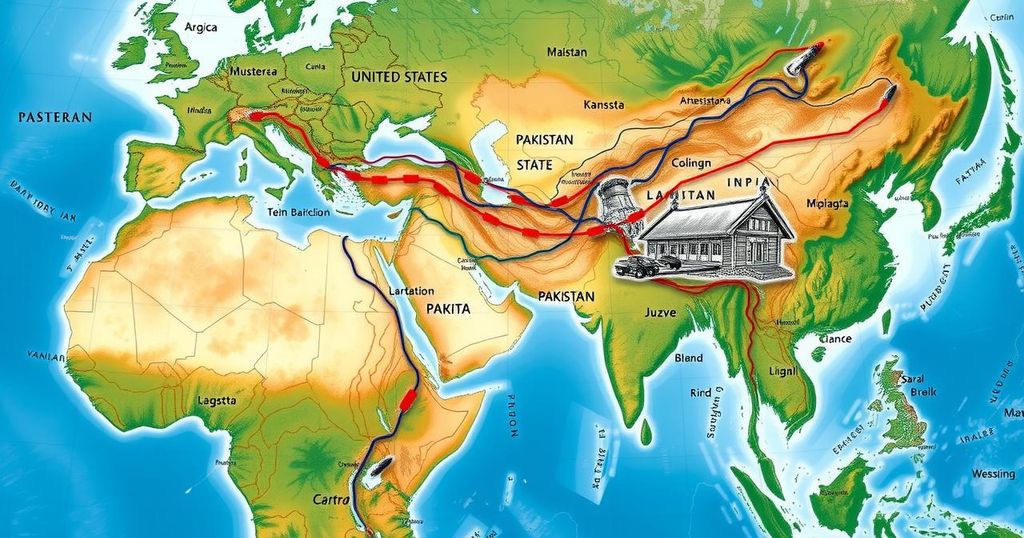Weather
World news
AFRICA, BAIRRO CARIACO, EVACUATIONS, GOVERNMENT - LED TECHNICAL COUNCIL FOR DISASTER MANAGEMENT, HCT, ING, INGD, MOZAMBIQUE, NATIONAL INSTITUTE FOR DISASTER MANAGEMENT, NATITE, NATURAL DISASTER, NATURAL DISASTERS, PAQUETEQUETE, PEMBA, RAIN, TECHNICAL COUNCIL FOR DISASTER MANAGEMENT, WEATHER, WFP - MANAGED DISASTER ANALYSIS AND MAPPING, ZAMBEZIA
Marisol Gonzalez
0 Comments
Cyclone Chido Threatens Mozambique: Government Prepares for Impact
Tropical Cyclone Chido is expected to strike Pemba, Mozambique, on December 15, 2024, as an Intense Tropical Cyclone. With rainfall up to 200mm and winds up to 120 km/h, approximately 1.7 million people are at risk. The government has activated emergency alerts, emergency response plans, and is coordinating disaster preparedness to mitigate the effects of the cyclone.
Tropical Cyclone Chido is projected to make landfall in Pemba, Cabo Delgado, on December 15, 2024, as an Intense Tropical Cyclone, bringing severe weather conditions. Expected heavy rainfall of up to 200mm over 24 hours and winds reaching 120 km/h pose significant threats, particularly to the approximately 1.7 million individuals at risk, including 1 million in Cabo Delgado itself. The National Institute for Disaster Management (INGD) is mobilizing resources and coordinating efforts to prepare for potential impacts.
The cyclone, akin in intensity to recent storms Gombe and Freddy, is anticipated to impact various provinces in northern Mozambique, particularly Cabo Delgado and Nampula, with lesser effects expected in Niassa, Tete, and Zambezia. While current river levels remain below alert thresholds, there is a risk that they will rise dangerously due to the impending rainfall. Furthermore, Pemba City faces risks of urban flooding in several neighborhoods, leading to further vulnerabilities amidst an ongoing cholera outbreak that has already resulted in fatalities.
In response to these threats, the government has declared an orange alert, activating provincial emergency centers in high-risk zones and preparing for a possible transition to red alert. Early warning systems are operational to notify at-risk populations about the cyclone, facilitating evacuations as necessary. The INGD is establishing accommodation centers for those affected and deploying supplies to vulnerable areas. In addition, anticipatory action protocols are in place for the pilot districts of Mogincual and Angoche, enabling proactive measures against the cyclone’s impact.
The Humanitarian Country Team (HCT) is enhancing readiness through comprehensive emergency response plans, pre-positioning supplies, and coordinating with humanitarian partners to streamline resources for effective disaster response. Communication with regional bodies and organizations continues to ensure additional support as the situation evolves.
Mozambique experiences regular tropical cyclones that place millions of people at risk, with significant potential for loss of life and property. Cyclones Gombe and Freddy, which occurred in previous years, resulted in widespread devastation, prompting the government and humanitarian agencies to establish better preparedness and response mechanisms. The occurrence of tropical cyclone Chido now raises urgent concerns given its projected intensity, the current socio-economic climate, and ongoing public health issues, particularly the cholera outbreak in Nampula province.
Cyclone Chido presents an imminent threat to northern Mozambique with predicted severe weather conditions set to impact millions. Government and humanitarian organizations are engaging in proactive disaster preparedness strategies, including alerts, resource mobilization, and early intervention protocols. Ongoing communication and collaborative efforts are crucial to ensure adequate support for vulnerable populations in the face of this natural disaster.
Original Source: www.unocha.org




Post Comment